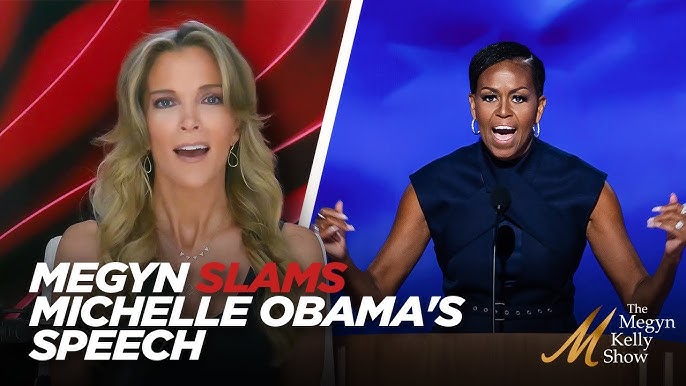In recent months, the political landscape has been tumultuous, and voices from both sides have expressed their opinions vehemently. A notable moment came during the Democratic National Convention (DNC) when Michelle Obama delivered a speech that some critics have labeled as detached from reality. This article explores the key points raised during her address and the broader implications of her statements, particularly in light of the current administration’s challenges.
The Context of the Speech
Michelle Obama’s speech at the DNC aimed to inspire hope among voters in the face of political adversity. However, critics argue that her portrayal of the current state of America and the optimism she expressed do not align with the lived experiences of many citizens. The speech was seen as an attempt to rally support for the Biden-Harris administration, which some perceive as struggling to address pressing issues such as economic instability and social unrest.
The Central Claims of the Speech
In her address, Michelle Obama emphasized the importance of hope and the need to overcome fear and division. She painted a picture of a brighter future, suggesting that the Biden administration would be the catalyst for this change. However, critics point out that her message was paradoxical, given that Joe Biden and Kamala Harris were already in power. If hope is indeed lacking, they argue, it must reflect poorly on the current leadership.
The contrast between Obama’s rhetoric and the realities faced by many Americans has led to significant debate. Her assertions that hope is “making a comeback” raise questions about how one can reconcile this optimism with the challenges of the current administration, including rising inflation, border security issues, and a general sense of discontent among the populace.

The Hypocrisy Argument
Critics, including media personalities like Megan Kelly, have called attention to what they see as hypocrisy in Obama’s statements. They argue that her privileged background and wealth—stemming from her husband’s eight years as president and subsequent lucrative opportunities—undermine her claims about fighting for the oppressed. The Obamas’ substantial net worth, reportedly around $70 million, is cited as evidence that they are out of touch with the struggles of everyday Americans. Critics contend that it is difficult to advocate for the rights of the less fortunate when living in luxury and owning multiple homes.
The irony is not lost on those who point out that while Michelle Obama speaks about the dangers of excess, her family’s wealth contradicts the principles she espouses. This perceived disconnect raises questions about the sincerity of her message and whether she truly understands the challenges faced by ordinary citizens.
The Role of the Democratic Party
As Michelle Obama aimed to inspire hope, the broader Democratic Party struggled with its identity and effectiveness. Critics argue that the party has failed to deliver tangible results since taking power, leading to skepticism about its ability to bring about the change it promises. The reliance on high-profile figures like the Obamas to galvanize support highlights a potential weakness within the party, suggesting that it may be out of touch with the electorate.
Moreover, the criticisms of the Biden administration’s policies, particularly concerning economic management and social issues, have fueled discontent. The disconnect between the optimism expressed by party leaders and the frustrations of voters creates a complex dynamic that the Democratic Party must navigate moving forward.

The Importance of Self-Reflection
The debate surrounding Michelle Obama’s speech emphasizes the need for self-reflection among political leaders. It is essential for those in power to engage with the realities faced by their constituents and not merely offer platitudes or idealistic visions. The ability to empathize with and understand the struggles of everyday Americans is crucial for effective leadership and meaningful change.
As the political landscape continues to evolve, it is imperative for leaders on both sides to recognize the importance of authenticity and connection with the electorate. The challenge lies in bridging the gap between lofty rhetoric and the tangible needs of the people they represent.
Conclusion: A Call for Genuine Engagement
The discussions surrounding Michelle Obama’s speech and the broader Democratic narrative underscore a critical need for genuine engagement with the electorate. As political leaders strive to inspire hope and unity, they must also confront the realities faced by Americans daily. The challenges of the current administration serve as a reminder that hope and progress must be grounded in authenticity, understanding, and a commitment to addressing the needs of all citizens.
In this era of political polarization, it is more important than ever for leaders to demonstrate empathy and take actionable steps toward real change. The contrast between rhetoric and reality must be reconciled to foster a sense of trust and hope among the electorate. As we move forward, the focus should remain on building a political climate that prioritizes the voices and experiences of all Americans, ensuring that hope is not just a slogan but a lived reality.